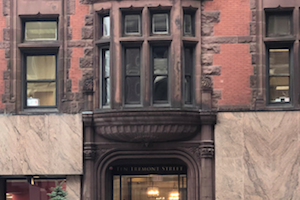For a Free Consultation
Civil Conversion
In Massachusetts, a court may treat a misdemeanor offense or a violation of a municipal ordinance or bylaw as a civil infraction. Though misdemeanors may involve potential jail time, they are not punishable by imprisonment in the state prison and are less serious than felonies. An experienced Massachusetts criminal defense attorney will advise as to whether it is possible and advisable to convert your misdemeanor to a civil infraction.
What Are the Benefits of Civil Conversion?Conversion of a misdemeanor to a civil infraction has many benefits. Even misdemeanor criminal convictions can affect your future opportunities for employment, education, and more. If a misdemeanor is converted to a civil infraction, you will avoid the possibility of having a criminal conviction on your record. Furthermore, civil infractions are not punishable by jail time. If you are found responsible for the civil infraction, you will only be subject to a fine, which will be based on the applicable bylaw, misdemeanor or ordinance. If the relevant bylaw, misdemeanor or ordinance does not include a civil fine as a possible punishment, then the judge can impose a fine, which can be as high as $5,000. Still, even a steep civil fine is generally preferable to the enduring and far-reaching consequences associated with a criminal conviction. After conversion of the case, “responsible” findings will not be used in the calculation of second or subsequent offenses or as a basis of a parole revocation or probation surrender.
Is My Case Eligible for Civil Conversion?Several misdemeanor offenses, including OUI and crimes against the person, are ineligible for civil conversion. Dispositions other than civil conversion may be preferable for defendants facing license suspension consequences because the Registry of Motor Vehicles treats converted civil “responsible” findings as “guilty” findings for license suspension and revocation purposes. If you have been charged with a misdemeanor in Massachusetts, you should speak with a criminal defense lawyer about your options.
What is the Law Governing Civil Conversion?Massachusetts General Laws chapter 277, section 70C is the statute governing civil conversion. This statute also lists the many offenses that are ineligible for this disposition.
What Should I Do If I’m Facing a Misdemeanor Charge in Massachusetts?Speak with a criminal defense attorney if you have been charged with any crime in Massachusetts. Even misdemeanor criminal convictions can carry devastating long-term consequences. A conviction on your record can make it difficult to get a job, an education, an apartment, a professional license, and more. A criminal conviction can affect your reputation in your community and your self -confidence. Contacting a defense lawyer is the first step in protecting your livelihood, reputation, and future.
Contact a Massachusetts Criminal Defense Attorney 617-263-6800Contact the Law Offices of Stephen Neyman, P.C. today if you or someone you know has been charged with a criminal offense in Massachusetts. Attorney Neyman can advise as to whether your case is eligible for civil conversion and whether that would be the most desirable disposition for you. Stephen Neyman has decades of experience in criminal practice and unmatched knowledge and skill. He is a fierce advocate for all of his clients and prides himself on superior results. His clients appreciate attentive client service and open lines of communication. Attorney Neyman practices in courts throughout Massachusetts, and his office is based on Congress Street in Boston. You can reach the Law Offices of Stephen Neyman, P.C. at any time of day or night by calling 617-263-6800 or by completing the contact form on this website. Your initial phone conversation will be free and confidential, so do not delay.
 Law Offices of Stephen Neyman Criminal Lawyers Home
Law Offices of Stephen Neyman Criminal Lawyers Home










